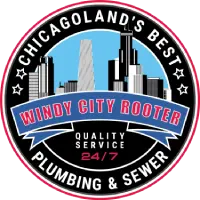Your plumbing is something you tend to take for granted – until something goes wrong. When that happens, you realize just how dependent you are upon properly performing plumbing. And if you’re living in a modern, 21st century home, we can answer that question for you: you are very dependent on your plumbing working properly. It is more than a little inconvenient when your toilet won’t flush or you turn on your faucet and only a trickle comes out, but your basement is flooded because a pipe rusted through. Emergencies such as these can be avoided for the most part if you spend time conducting a regular plumbing inspection in your Antioch home. Just as a car only performs well with regular maintenance, so it is with your plumbing. Neglecting your plumbing can lead to some serious complications over time, complications that can cost you a great deal of money. Getting an inspection every now and then can save you the headaches of any number of these common plumbing pitfalls.
The Effects of Neglect
Other than a non-working toilet and flooded basement, neglecting to have regular plumbing check-ups can see you:
- Frequent drain clogs
- Reduced lifespan of plumbing fixtures
- No hot water
- Frequent pipe leaks
- Higher costs on utility bills
- Higher risk of frozen or burst pipes
- Greater in-home discomfort
Benefits of Regular Maintenance
On the other hand, if you take a few minutes on a regular basis to go through and check on the health of your plumbing, you will realize a great many benefits, including:
- Improved plumbing fixture lifespan
- Lower costs on utility bills
- Reduced risk of water damage
- Greater convenience around the house
- Hot water 24/7 for showering, laundry, dishwashing, etc.
- Improved water quality
- Better peace of mind
What to Look For
Now that you know the importance of a regular plumbing inspection in your Antioch home, you probably want to know exactly what you need to check, and if you will know when something needs to be fixed. A general inspection is easy to do and we will tell you what needs checking and what you are looking for. As for repairs, it is best to leave most plumbing repairs to professionals as one wrong move can end up creating a lot of damage. Taking the time to perform an inspection, however, is something that you will become proficient at over a short period of time. Include the following in your inspection:
- Check water heaters for any leaks – Look for signs of damp concrete or puddles beneath the tank.
- Testing shut-off and pressure relief valve on water heaters – Turn this off and then on and make sure it is operating as it should. Operation should be smooth and without sound and reaction should be immediate.
- Check electrical or gas valve connections on water heaters – A short in the electrical unit or a leak in the gas valve connections can not only cost money but also create a fire risk.
- Inspect plumbing fixtures leaks or damages – check for drips on the floor, signs of leaking in walls and any moisture on pipes. All of these can indicate there is a leak somewhere. Small drips become major leaks if not repaired.
- Be alert of any slow drainage from fixtures – This indicates there is a clog somewhere in the system. Water should flow freely and quickly.
- Check faucets for leaks. – Washers wear out and seals get broken. The little drip that may appear barely noticeable can add up to hundreds of dollars in wasted water over time.
- Test flushing on toilets for leaks. – Your toilet should only run long enough for the tank to refill when you flush the toilet. If your toilet runs continuously or seems to run at odd times between use, it can mean the seal inside needs replaced.
- Check or install water softening systems – Hard water not only leaves stains but it also causes build-up within your pipes that will slowly rust them from the inside out. Installing a water softening system takes care of both problems.
- Check or install water filtration – Chemicals added to water to clean it can cause problems with build-up within pipes. A water filtration system will help eliminate the worst of the damage in the areas around the spigot and in such appliances as dishwashers and washing machines.
- Ensure piping is insulated and leak free – A frozen pipe can burst as it warms back up. The constant expanding/contracting of repeated freezing/thawing weakens the pipe, and all the pipes connected to it. Install special pipe insulation around all pipes and check regularly to make sure it remains free of tears and holes.
Run through this general inspection twice a year and you should be able to catch any minor problems before they become major ones. It is also recommended that once a year you have a professional come in and inspect the parts of your system you can’t. With regular maintenance, you won’t have to worry about being left high and dry at the worst possible moment.

